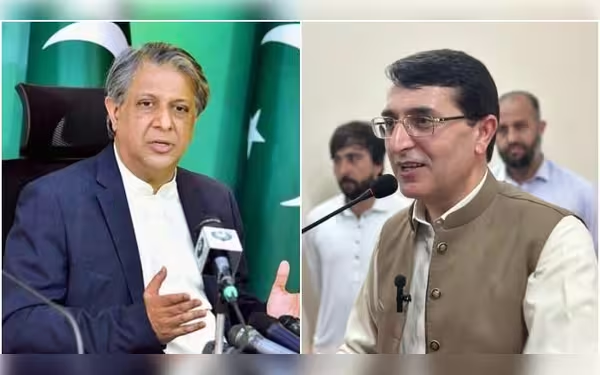Saturday, November 16, 2024 07:40 PM
PTI Denied Reserved Seats Under New Election Law, Says Azam Nazeer Tarar
- PTI will not receive reserved seats under amended law.
- Supreme Court ruling impacts independent candidates' affiliations.
- Government asserts parliament's authority in law-making.
 Image Credits: thenews.com.pk
Image Credits: thenews.com.pkLaw Minister Azam Nazeer Tarar states PTI cannot receive reserved seats under the amended Election Act following a Supreme Court ruling.
In a significant development regarding the allocation of reserved seats in Pakistan's political landscape, Law Minister Azam Nazeer Tarar has firmly stated that the Pakistan Tehreek-e-Insaf (PTI) will not receive any reserved seats under the amended Election Act. This statement comes in the wake of a detailed verdict issued by the Supreme Court, which has further clarified the legal framework surrounding this contentious issue.
The Supreme Court's ruling has sparked discussions across the political spectrum, particularly concerning the status of independent candidates who were previously backed by the PTI. Minister Tarar emphasized that these independents, who have now aligned themselves with the Sunni Ittehad Council, are barred from joining any other political party. This situation raises questions about the future of these candidates and their political affiliations.
Tarar's remarks underline the government's position that the parliament holds the authority to create or amend laws as it sees fit. This assertion is crucial, as it reinforces the legislative body's power in determining the rules governing political representation in Pakistan. The implications of this ruling are profound, as they could reshape the political dynamics in the country, especially for the PTI, which has faced numerous challenges in recent times.
As the political landscape continues to evolve, it is essential for citizens to stay informed about these developments. Understanding the legalities surrounding political representation can empower voters and encourage active participation in the democratic process. The ongoing discussions about reserved seats and party affiliations highlight the importance of transparency and accountability in governance.
The Supreme Court's verdict and the government's response signify a pivotal moment in Pakistan's political journey. As the situation unfolds, it will be interesting to observe how these legal interpretations will affect the future of political parties and their strategies in the upcoming elections. Engaging with these issues is vital for fostering a robust democracy where every voice is heard and represented.













